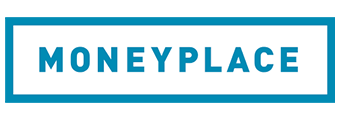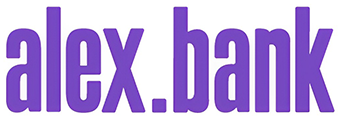What is an unsecured car loan?
An unsecured car loan is a type of personal loan used to finance the purchase of a vehicle without using the car as collateral. Unlike a secured car loan, where the lender can repossess the vehicle if you default, an unsecured loan does not require an asset to back the loan.
Because the vehicle isn't tied to the loan, the lender doesn't necessarily have a claim on your car if you miss repayments. However, this flexibility usually comes at the cost of higher interest rates as the lender takes on greater risk.
Approvals and interest rates are typically based on your creditworthiness and income. If your credit score is strong, you may qualify for a competitive rate. If not, your options may be limited or you may face punitive rates.
Pros and cons of unsecured car loans
Benefits
-
More vehicle flexibility - Unlike secured car loans that typically restrict purchases to new, demo, or used cars under five to seven years old, unsecured loans can be used to finance older vehicles, classic cars, or private sales that may not meet secured loan eligibility.
-
No collateral required - If you default, the lender can't automatically repossess your vehicle, offering peace of mind for borrowers cautious about asset risk.
-
Borrow for car-related costs - Since the loan isn't tied to the car's value, you may be able to borrow more to cover rego, insurance, tyres, or repairs, which are not typically included in secured car loans.
-
Faster approval - In some cases, lenders may skip vehicle valuation processes, making approvals quicker, especially if you have a solid credit score and steady income.
Drawbacks
-
Higher interest rates - Unsecured car loans typically attract much higher interest rates (and therefore, repayments) than secured options. It's not uncommon for unsecured loan rates to be double or more than secured loans.
-
Heavily dependent on credit score - Your eligibility and rate are largely determined by your credit score and financial profile. Lenders often have tiered interest pricing based on these criteria. A below-average score can lead to very high interest rates or rejection.
-
Lower borrowing limits - Without collateral, some lenders may cap how much you can borrow, especially if your income or credit history is borderline.
-
Debt collection risk - While your car isn't at risk of repossession, it doesn't mean you can simply walk away from the loan. The lender can pursue legal action or hire debt collectors, possibly leading to wage garnishment or court-ordered repayment.
See Also: Car Loan Repayment Calculator
What to look for in an unsecured car loan
Competitive interest rates
Unsecured car loans usually have higher interest rates than secured ones. However, rates can vary widely depending on your credit score and lender, so it pays to shop around for a competitive interest rate.
Why it matters: Even a small rate difference can cost you hundreds or thousands of dollars over the loan term. Aim for the lowest rate your credit profile allows.
Comparison rate
Don't just focus on the advertised rate; look at the comparison rate too. Unlike the advertised rate, the comparison rate includes fees as well as interest, giving you a more realistic picture of the loan's true cost.
Why it matters: If the comparison rate is much higher than the advertised rate, it usually means the loan comes with a laundry list of fees. Aim for a close match between the two.
Fees and charges
Common loan fees include establishment, account keeping, assessment, early exit, and extra repayment fees, among others. Always read the fine print and check what types of fees you'll be paying.
Why it matters: Fees can significantly inflate the cost of the loan, especially if you perform certain actions that trigger a charge or a penalty, e.g., repaying early or making extra repayments.
Loan term flexibility
Most car loan lenders offer terms between 1 and 7 years, with some extending up to 10. Choose a term that balances manageable repayments with overall interest cost. Choose a repayment schedule that fits your budget to avoid putting yourself under financial stress.
Why it matters: Generally, longer loan terms mean lower regular repayments, which could be better for managing cash flow. However, a stretched-out term also means you'll pay more in interest overall. While shorter terms cost more month to month, you'll pay less in interest.
Extra repayment features
Consider an unsecured car loan with extra repayment features, especially if you expect to repay the loan ahead of schedule. Variable rate car loans may come with unlimited additional repayments and a redraw facility, while fixed loans usually impose a cap.
Why it matters: Making extra repayments lowers the total amount of interest you will pay by shaving months or years off your loan term. A redraw facility also comes in handy when you need to access extra repayments you've made. Note, however, that these features may not be free, but could still be worth it if the interest savings offset the fees.
Borrowing capacity
Check if you can borrow more than the cost of the car, which is often one of the key advantages of an unsecured car loan over its secured counterparts. However, that means you'll be taking on a greater loan and paying interest on routine expenses like rego and insurance.
Why it matters: Any funds you borrow beyond the car's value can help cover the costs of rego, insurance, repairs, or modifications. These are particularly useful, especially if you're purchasing used or older vehicles that may need some extra attention. Be careful not to overextend yourself, though, by borrowing more than you need or can repay.
Approval time and requirements
Car loan lenders typically require detailed income verification and credit checks. Some offer fast online approval. If you're eligible, you could complete an application in minutes and have funds in your account within hours.
Why it matters: If you're in a hurry, e.g., buying from a private seller, being able to get approved fast could be the difference between securing the car or missing out. Just be sure to choose a reputable lender with a transparent and efficient application process, and avoid dodgy operators advertising "fast" loans that may actually be high-cost payday loans in disguise.














